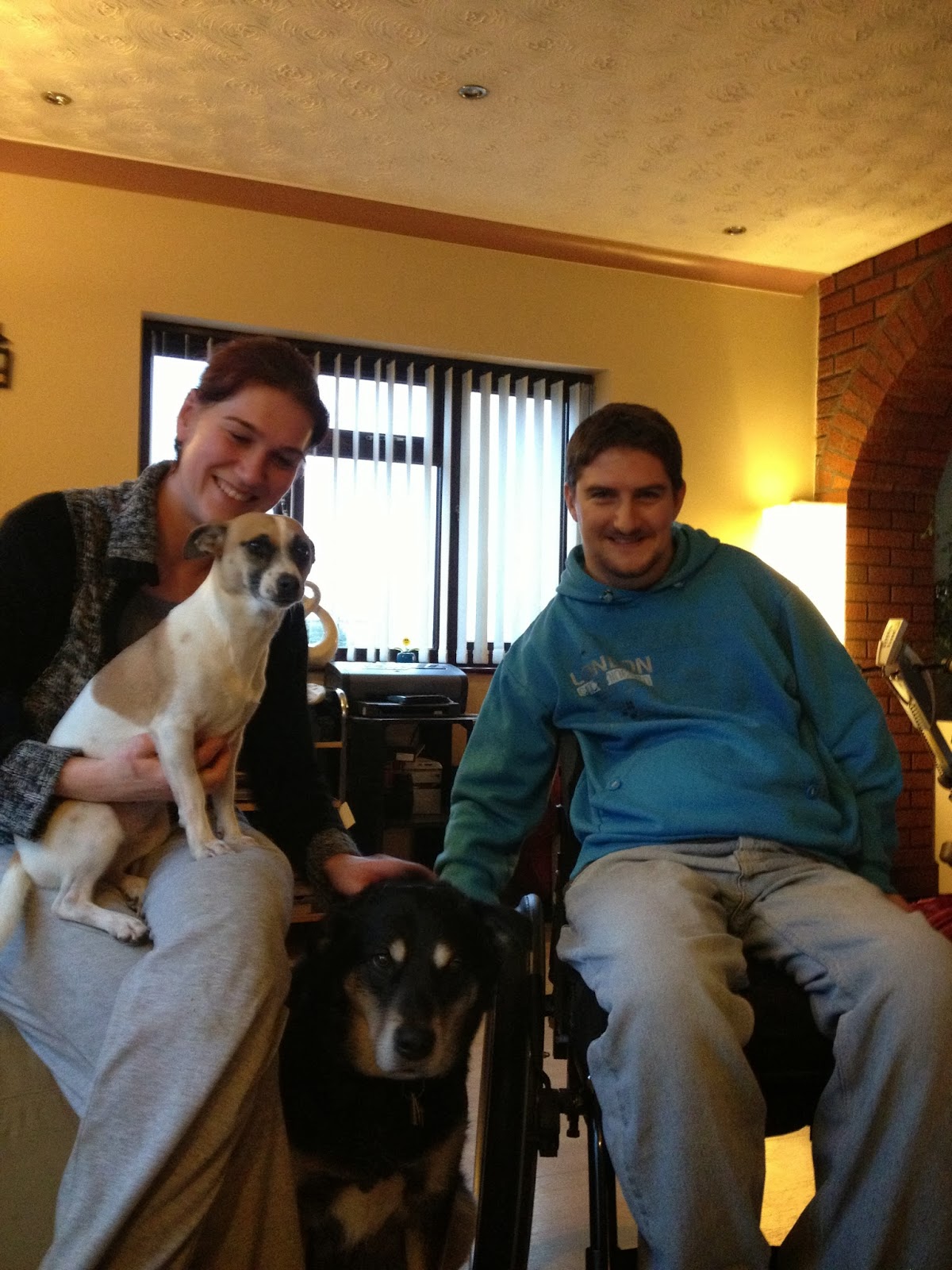Spending an afternoon with Simon Brain and Anna Chmielewska,
one of our long-term live-in care partnerships, it is clear to see why we do
what we do. Simon, who previously sustained a C5/C6 spinal cord injury at the
age of nineteen, has been receiving live-in care from Helping Hands since 2000.
Immediately after sustaining his injury, Simon was
understandably anxious. An independent young man, he was unsure about what the
future would hold and how the direction of his life would change.
“For the first few years after my accident, I closed myself
off and didn’t want to do anything as I was originally worried what other
people would think. However, over time I started going out to different places
and stopped worrying about what other people thought.”
Receiving Live-in Care from Helping Hands, although later
proving a great decision, was initially a daunting prospect that contributed to
Simon’s uncertainty.
“It was a shock,” Simon explains. “Going from being so
independent to relying on someone and putting your trust in them was difficult.
In the beginning, I was instructed to stay in bed because of an unhealed
pressure sore. I was advised to stay in hospital, but I just wanted to get
home. Helping Hands came out to me, and I was able to return home with support
from one of their Live-in Carers.”
Now, fourteen years down the line, Simon is embracing
independent living with support from his permanent Helping Hands Live-in Carer,
Anna Chmielewska. Visiting them at home, it is clear to see that they are a
perfect match.
“When a Carer first arrives, I am a little bit nervous about
whether or not we will get on. I prefer Carers to be a similar age to me, as
then we generally have a similar taste in music and films. My permanent Carer,
Anna, is just great.”
Sitting together in front of a roaring open fire, Anna
brings in Simon’s two dogs, which are obviously spoilt rotten by the pair. United
by their love of dogs, Anna and Simon just seem to click, and it is clear to
see that Helping Hands’ matching process worked perfectly for them.
“You really can’t fault the Carers,” Simon remarks. “The
matching process is great and Anna is perfect in terms of personality and
competence.”
Every day, Simon and Anna work well together. They maintain
a routine that follows the outcomes stipulated in his individualised plan of
support, whilst having fun along the way.
“We generally stick to the same morning routine,” says
Simon. “Anna supports me in the morning with my personal care routine. Then, in
the afternoon, I spend my time studying web design and photography on the
computer. Being a self-employed photographer is definitely an option for the
future.”
With support from Anna, Simon continues to pursue his chosen
lifestyle. Here at Helping Hands, we are committed to making independent living
possible for many others like Simon across the UK.
Offering invaluable advice to others affected by spinal cord
injuries, Simon says, “When I was in hospital, being around other people with
spinal cord injuries and seeing how confident they were taught me to move
forwards.
I would say to others in my position, just get back out
there and start living your life. Before my accident, I was really active and
into sports. I couldn’t see myself doing anything with computers, but you just
have to work through it and try different things.”
Leaving Simon and Anna to it, we know that we have just
witnessed what Live-in Care is all about.
If you, like Simon,
have sustained a spinal cord injury and would like support from someone like
Anna, please contact Helping Hands today on 0808 180
1553.




